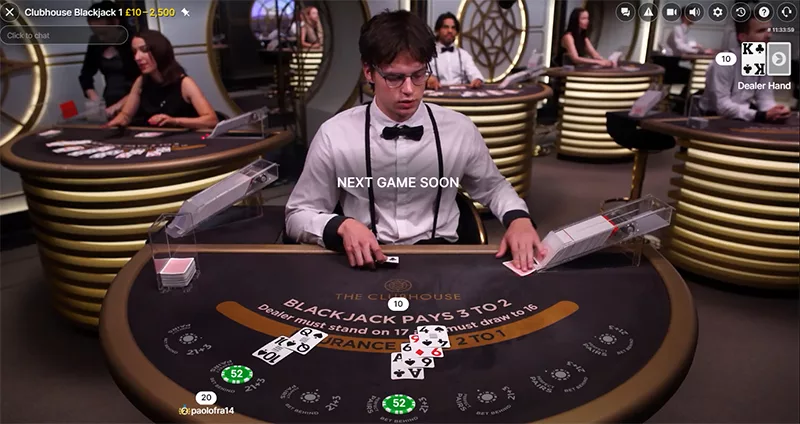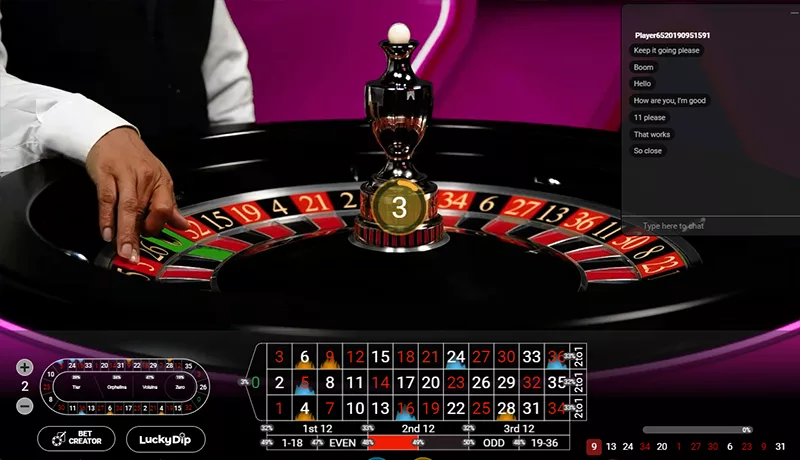What Really Goes On Behind The Scenes at a Live Dealer Casino

Live dealer casinos online have taken things to a whole new level. I’ve spent countless nights exploring these virtual gambling dens, and let me tell you, there’s a whole world behind those digital curtains that most folks don’t even know about.
In this little tour, I’ll take you behind the scenes of live dealer casinos. With fancy streaming setups, slick studio designs, and high-def cameras, there’s a lot more than meets the eye to make you feel like you’re right there at the table.
Table of Contents
The Technology Powering Live Dealer Casinos
Let me tell you, the tech behind live dealer casinos is pretty astounding. It’s not just a person sat in front of a casino table with a camera in front of them. I’ve spent a fair bit of time exploring the set up, and it’s amazing how they bring the casino experience right to your living room.
High-Definition Streaming
First, there’s the high-definition streaming. Software providers use state-of-the-art HD cameras to capture every detail of the action. 4K cameras are becoming the norm, as companies like Evolution Gaming and Ezugi want things to look so crisp, you can practically count the stubble on the dealer’s chin.

Optical Character Recognition
Optical Character Recognition is what brings the dealer’s world and yours together. It’s like having a super-smart robot that turns everything that happens on the camera into data which is broadcast to your device.
Cards, roulette numbers, you name it. OCR sees it all and turns it into data that pops up on your screen. It’s what lets you see your cards and place bets without missing a beat.
This is how the interface at the bottom of the screen knows what number the roulette ball has landed on or what cards you’ve been dealt in a hand of blackjack. Without the GCU, you wouldn’t be able to have what’s happening in the game be delayed to you in real time.
OCR records everything, so if there’s ever a dispute about a hand, the casino can just roll the tape and settle it fair and square.
Game Control Units
The last bit of the tech puzzle is the Game Control Unit, or GCU as it’s called in the biz. Every live casino table has one them, which encodes what happens in the game. It basically acts as a bridge between the data being sent to your screen and you as well as what you do within the game interface and the dealer, making sure it all matches up.
The dealer can see all of the important information on the GCU so they’re able to react in real-time to your bets and chat.
The Human Element: Professional Dealers
Of course, the real stars of live dealer casinos are the dealers themselves. I’ve spent many a night at these tables, and I can’t help but be impressed. They’re not just dealing cards or spinning a wheel; they’re the reading the chat, they’re reacting to the chat, they’re monitoring the GCU and multi-tasking like crazy. It’s not a job for the faint-of-heart but, then again, neither is dealing in a land-based casino.
Training and Qualifications
The people who make the cut to become live dealers through some serious training. I’ve heard that some casinos offer free training, while others make you pay for it. Either way, you have to prove you’ve got what it takes before being considered.
I’ve been told by a friend who works in the industry that live dealer school generally lasts about three weeks. Here is where you learn all the ins and outs of the games, how to handle chips like a pro and even how to deal with players.
Even if you have a background in dealing in land-based casinos in land-based casinos, you still have to get to grips with the technical setup. That alone is a week’s worth of training.
Live dealer academies have been popping up all over the place, too. This kind of training is not yet standardized, but you can still get a certificate that says you’ve completed a course that has equipped you with the right skills and knowledge for a live dealer casino job.
Managing the Game Flow
Live dealers are on their feet for hours, dealing with all sorts of players. Some might be drunk, others might be losing and getting cranky or making inappropriate comments in the chat. But a good dealer keeps their cool and keeps the game flowing.
They’ve got to be quick with the math, accurate with the payouts, and always on the ball. One wrong move and they could cost the casino money. That’s why they’re always clearing their hands for the camera and following strict procedures. It’s all about keeping the game fair and fun for everyone.
It’s incredibly impressive what these dealers do, and I think it’s important with pay them their dues.
How Much Do Live Casino Dealers Get Paid?
This was actually the hardest bit of information to find, since casino operators don’t really like broadcasting how much they pay their staff. Fortunately, I was able to dig up some information on GlassDoor.com, which states that online casino dealers get paid between £28,000 to £42,000 ($36,000 to $54,000 USD).
What Do Live Dealers Say About The Job?
Having been involved in the gaming industry for over a decade now, I’ve made some connections so I wasn’t too surprised to find out a friend of a friend works as a live dealer in Malta and she was happy to share some of her experiences with me.
She noted that the environment is the main upside of the job. While actual land-based casinos can be more lovely and have a more buzzing atmosphere, they aren’t often the safest of places. Especially when you have someone getting a bit too overserved or a fight breaks out, a casino isn’t the kind of place your mom would be happy about you working in. Of course, these are rare instances, but a couple of bad experiences can sour your taste for the job.
In the live dealer studio, it’s just a group of dealers and techies. It’s an intimate setting where you really don’t run into any problems aside from the odd workplace drama. She says, in that sense, it’s more like working an office job than it is working in a casino.
The only instance of safety being at risk is when an online player tries to get a little too familiar. There have been instances of players attempting to doxx (find and spread a dealer’s personal information like address or phone number) and, while this can be quite scary, the security teams and online gaming managers can quickly jump into action to prevent the dealer’s safety from actually being threatened.

She noted a downside to the job is the tipping. In land-based casinos, tips come in thick and fast but they are quite sparse online. Tipping is a function that’s available on live casino platforms, but players just don’t tend to click that button very often, whereas offline players tip on almost every hand.
Still, she prefers the privacy and chilled-out vibe of the live dealer studio. On occasion, she’ll pick up a shift at an offline venue and line her pockets with some hefty tips but those occasions are few and far between.
The Future of Live Dealer Casinos
In researching this article, I came across some rumblings from the industry insiders I was in touch with. Keeping an eye on the latest trends, it looks like live casino players are in for a treat. The online casino world is getting a major tech upgrade, and I can’t wait to see how it all plays out.
Virtual and Augmented Reality
You know how live dealer studio are designed to make players feel like we’re in a real casino? Well, VR and AR are about to take that to a whole new level. Imagine slipping on a headset and suddenly you’re in a virtual casino, walking around and playing games like you’re really there.
I’ve tried out a few VR poker games, and it’s a trip. This is the kind of thing that’s on the horizon in the live dealer world, combining the environment of a live dealer studio with the same kinds of capabilities presented by Virtual Reality poker.
Enhanced Player Interaction and Game Management with AI
In my experience, the personal touch is what makes live dealer casinos stand out. But imagine this: AI-driven chatbots assisting dealers by answering routine questions, letting them focus more on engaging with you and other players. It’s like having a sidekick who takes care of the small stuff so the dealer can keep the game lively. Plus, with real-time translation, you could be chatting with someone halfway across the globe without missing a beat.
If you’ve spent a fair bit of time at these tables like I have, you know that a smooth game flow is crucial. AI can help here by automating routine tasks like shuffling and dealing. It’s like having a well-oiled machine behind the scenes, ensuring everything runs without a hitch. And when it comes to spotting irregular betting patterns, AI is on the job, keeping the game fair and square.







